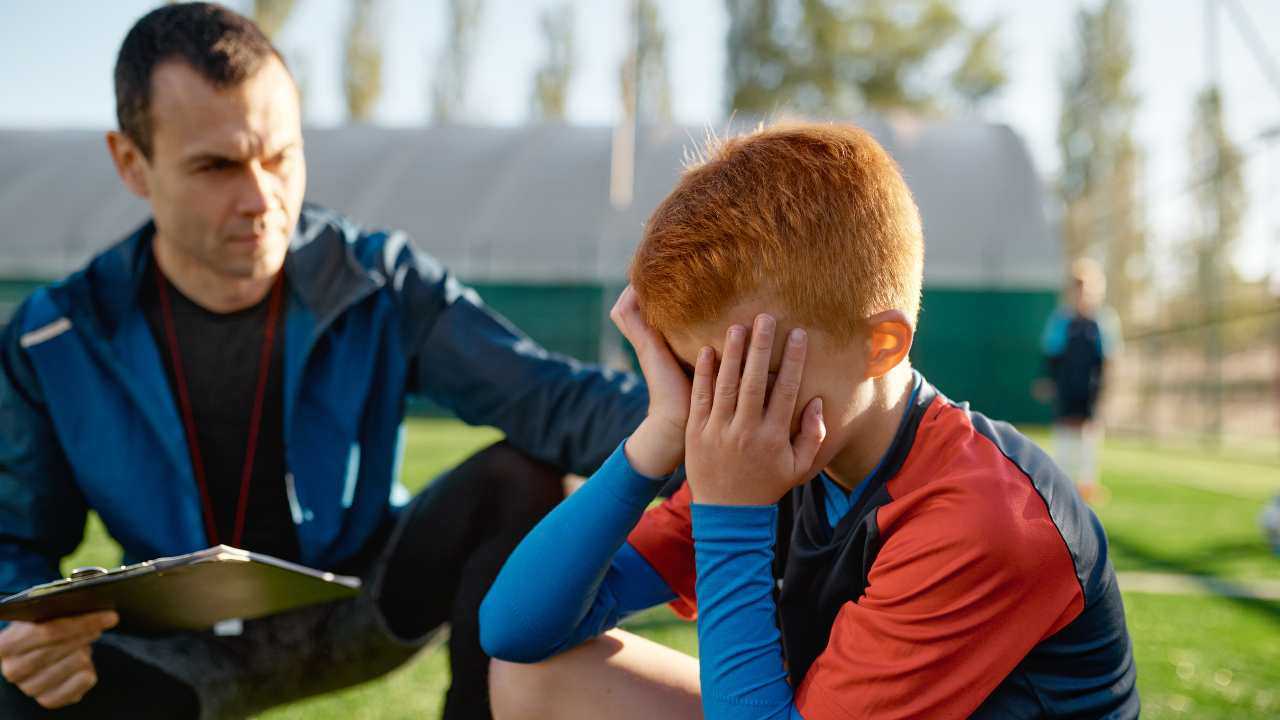3 Things Youth Sports Parents Worry About
It’s not just you.
Matt Bowers, PhD
| 6 min read

Canva
I’m a parent trying to navigate the increasingly complex world of youth sports, but I’m also faculty in Sport Management at the University of Texas at Austin, where I study how we can design and deliver youth sports in a way that does more good for more kids.
Being an expert in this space means that fellow parents track me down on the sidelines for what become impromptu therapy sessions to discuss what they are (or aren’t) doing right when it comes to youth sports.
Here are the three biggest worries I hear.
“I feel like I’m becoming that youth sports parent.”
You know the one… the dad who moves his daughter to a different club because the coach is playing her at the “wrong” position; the mom who brings in a personal trainer to help her son gain an edge in the off-season; the parent who sends the late-night email to the league commissioner complaining that one of the other teams has too many good players.
Here’s the thing: You feel that way because the youth sports system in the United States is kind of set up to make you feel that way.
Let me explain.
Do you feel like your best self when you’re buying a new car? Or when you contemplate moving your kid from a public school to charter school?
Probably not. You might feel overwhelmed by your options, or anxious that you’re missing out on something better. Am I getting a good deal?
That’s because, in the US, we tend to prefer to allow local markets to function in place of government intervention wherever possible.
It’s not necessarily a bad thing. You’re making decisions within a loosely-regulated market that enables you — the consumer — to choose where you want to spend your money. This is (theoretically) good because we like choice and control.
The trade-off in youth sports, however, is that the market responds to consumer demand and shifts its sports programs to align with where the money is flowing in.
This means that, unlike other countries where youth sports has strong, centralized governance that protects children and nurtures a developmental climate, youth sports in America prioritizes consumer choice over the youth athlete.
“I think my kid might suck.”
Oh boy, have I had this thought more than a few times. And, you know what? Your kid might suck. That doesn’t mean that they can’t still have a positive experience with youth sports.
Anyone with some basic awareness of statistics and normal distributions recognizes that most kids don’t truly suck — just like most kids aren’t the next Lebron James or Serena Williams. But when it comes to accurately assessing your kid’s performance and potential, I consistently see the same misunderstandings about development across youth sports.
As humans, we are poorly suited to being able to sift through the immediate emotional responses related to the outcome of a particular game and see how that game fits within a longer developmental arc. We are not very good at measuring progress in months and years. Our inability to do this means we tend to evaluate performance based on the scoreboard.
Think about it: what was the first question you asked your kid the last time they walked in after their game? (We all know the answer to that one — Did you win? What was the score?)
But think further about what kind of message that sends to them about what you value and, in turn, how that short-term focus chips away at that longer-term development.
“I’m not doing enough to help them realize their dream.”
Question: Is it their dream?
I see many parents trying to exorcize their own demons or fulfill unrealized hopes and dreams through their kids — and almost none of them realize they are doing it. Chances are, you’ve seen it in other parents.
It’s much harder to see it in ourselves.
My standard bit of advice to parents feeling that impulse to move their kid to a different club or to approach the coach about a position change is to help them reframe their role in the process.
As I like to tell myself, “My kid needs a rebounder, not an agent.”
In the vast majority of situations, that advice holds up. Your kid needs someone to be there for them, to chase down their loose balls, to rebound their misses, and to set them up to have the confidence to take the next shot — both literally and figuratively.
What’s a youth sports parent to do?
For parents, like me, who worry how to navigate youth sports, the first step is to recognize the way the system functions. It’s a marketplace that doesn’t serve every child or family equally. It’s designed to value wins over development. And because we came up in this system, we as parents tend to misunderstand our role in it.
And it’s not just you or me wrestling with these trade-offs. It’s all of us.
Thankfully, there are some bold steps being taken to change youth sports for the better.
For one, the Aspen Institute’s Project Play is leading the way on a commonsense version of a children’s bill of rights in sports for the United States, which, among other things, says kids have a right to play and have fun, in a safe environment and with qualified leaders. It’s inspired by Norway, where their children’s sports bill of rights explicitly ensures and protects a basic level of positive sports experiences for all kids. There, 93 percent of children grow up playing organized sports.
And while the US may never be Norway, a positive sports experience for a kid shouldn’t be something we cross our fingers and hope for. It should be a promise we uphold as a society for all kids, regardless of how good an athlete they are, what zip code they’re from, or how much money their parents make. And if we can do that, we may find there are fewer things to keep youth sports parents up at night.
Matt Bowers is a professor of sport management at the University of Texas at Austin. He specializes in youth sport, pickup games and athlete development.




